About The University
Sebha University is the largest university in Southern Libya, located in Sebha city, one of the major cities in the south of Libya. It is situated a few kilometers away from Sebha International Airport. The university originated from the Faculty of Education – Sebha Branch, which was established in 1976 and was affiliated with the University of Tripoli. In the beginning of 1983, Decision No. 187 of 1983 was issued by the former General Popular Committee, declaring the establishment of Sebha University as an independent university to serve the municipalities of southern Libya.
Initially, the Faculty of Education and the Faculty of Sciences were established, followed by the faculties of Human Medicine, Agriculture, Engineering and Technology, Economics and Accounting. The number of university faculties has grown to twenty-two, distributed across various regions in the south. Additionally, there are seven different research centers within the university. Currently, the university has more than 25,000 male and female students, over 1,300 teaching staff members, as well as 3,500 employees.
The university regularly organizes scientific, sports, and exhibition activities, scientific conferences, awareness seminars, training courses, and evaluates scientific research in local and international scientific journals. It also participates in various activities organized by other universities inside and outside Libya.
Higher Education in the Faculties
Educational and Academic Programs at the University
Sebha University offers several academic programs in various faculties of the university, and students are awarded university degree certificates in all departments according to the academic plans of the faculties.
Postgraduate Studies in Faculties
In the academic year 1990/1991, the university initiated its postgraduate program at the Faculty of Arts, followed by the faculties of Science, Engineering, Technology, Agriculture, and Energy and Mining Engineering.
The university offers a postgraduate program (Master’s degree) according to the study plans of each faculty, and currently, a doctoral program is also available.
The total number of educational programs at the postgraduate level is 22 programs distributed among five faculties:
- Faculty of Arts: Grants a Bachelor’s degree in the following departments: Arabic Language, Quranic Sciences, History, Interpretation, Geography, Psychology, and English Language.
- Faculty of Science: Grants a Master’s degree in the following departments: Chemistry, Botany, Zoology, Physics, Computer Science, and Mathematics.
- Faculty of Engineering and Technical Sciences: Grants a Bachelor’s degree (Master’s degree) in the following departments: Civil Engineering, Electronic Engineering, Medical Laboratory Sciences, Environmental Sciences, and Food Science and Technology.
- Faculty of Energy and Mining Engineering: Grants a Master’s degree in Renewable Energies under the Renewable and Approved Energy Department in collaboration with the Tempus Program.
- Faculty of Agriculture: Grants a Bachelor’s degree (Master’s degree) in the following departments: Soil and Water, Agricultural Economics,
Basic information about the university:
A. Year of establishment: 1983 by Decision No. 187. B. Number of faculties: 20 faculties. C. One of the faculties is located outside Libya, in N’Djamena, Chad. D. It has obtained 3 patents.
The number of agreements signed with counterpart institutions
- At the local level, there are four local agreements.
- At the international level, there are a total of 44 international agreements as follows:
- Six local agreements.
- Twenty-six international agreements.
- Eighteen international agreements that are currently in effect.
The Centers:
Sebha University has 6 centers that provide services to students, faculty members, and the community:
Table 1 shows the number of centers at Sebha University.
| Establishment Date | The center / The office |
| 7/10/2001 | The Media Center |
| 12/6/2004 | Quality and Performance Evaluation Office (The first office in Libyan universities) |
| 2001 | Information Technology Center |
| 2016 | Training and Development Center |
| 2018 | Research and Consulting Center |
| 2008 | Language Center |
| 2019 | Information Development Center |
| 2019 | Environment and Community Service Center |
| 2019 | Leadership and Innovation Center |
E-learning
The university has turned to the field of e-learning and distance education since the beginning of 2016. The use of this technology has contributed to finding solutions to some educational problems and constraints. Some faculties have suffered from deficiencies in teaching courses, especially the Faculty of Medicine and Pharmacy, due to the absence of qualified professors in some subjects and the difficulty of travel and mobility for collaborating professors between other universities due to geographical distance.
Based on this, a lecture hall was equipped at the Faculty of Medicine for the purpose of collaboration with some professors to compensate for the shortage in some of these courses. This technology has been well-received and appreciated by professors and students.
This technology has also been used to solve problems related to the discussion of master’s theses in most faculties, which used to face difficulties in communication and bringing in external examiners. With the presence of this technology, more than 20 theses were discussed through video conferencing technology during the years 2016, 2017, 2018, and 2019.
For more information, please visit the Electronic Library and e-learning website.
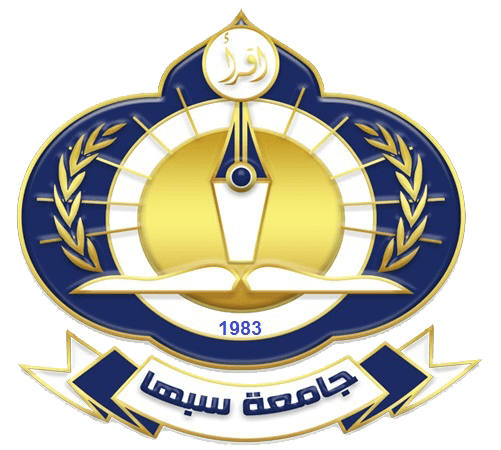
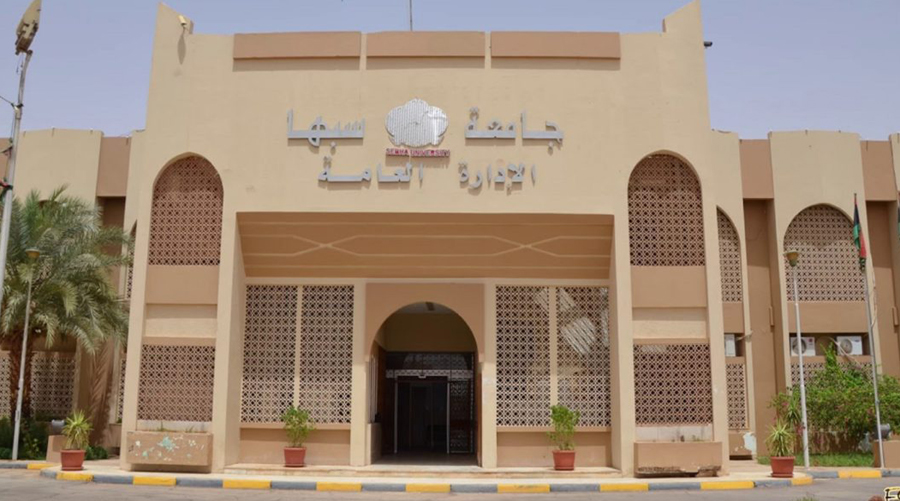

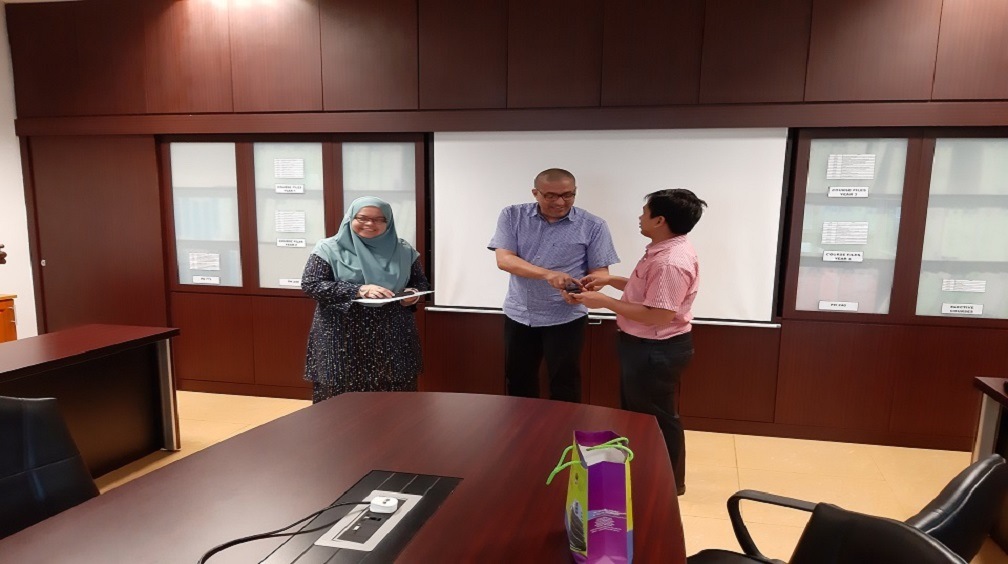
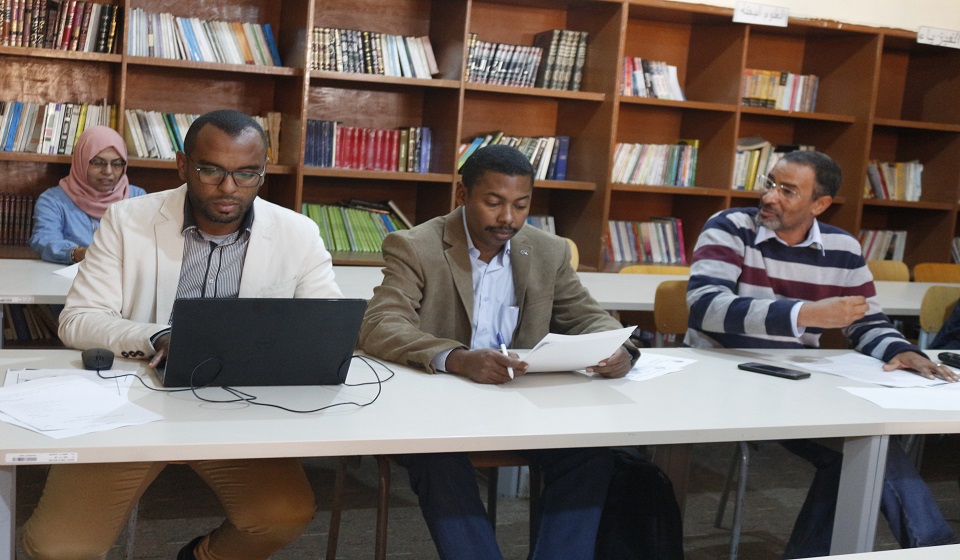
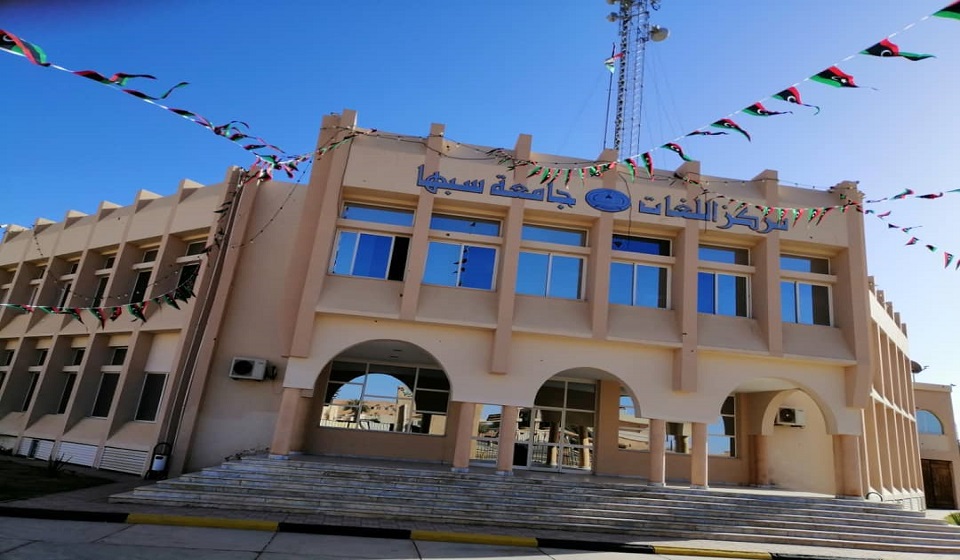





 Users Today : 2393
Users Today : 2393